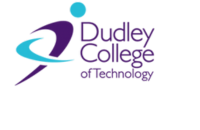This article is part of our series exploring key lessons from influential books—works that offer valuable insights into personal growth, productivity, and professional development. Whether you’re revisiting a familiar favourite or discovering these ideas for the first time, we’ll uncover practical wisdom that remains relevant today.
Rich Dad Poor Dad by Robert Kiyosaki, published in 1997, challenges conventional wisdom about money, work, and financial success. Drawing from his experiences with two father figures—his educated but financially struggling ‘real’ father and his friend’s entrepreneurial father—Kiyosaki shares insights that have transformed how millions think about building wealth.
The book has become one of the best-selling personal finance books of all time, praised by business leaders and financial educators for making complex financial concepts accessible to everyday readers. In this post, we look at five practical lessons that can help you build financial confidence and make smarter career decisions, whether you’re just starting out or looking to improve your financial future.
- Know the difference between assets and liabilities
Here’s the simple truth that changed everything for Kiyosaki: assets put money in your pocket, while liabilities take money out. Many people think their car or latest gadget is an asset, but if it’s costing you money each month, it’s actually a liability.
Try this: List everything you spend money on regularly. Mark each as ‘A’ (brings money in) or ‘L’ (takes money out). You might be surprised how few true assets you have. Start thinking about how to tip the balance.
- Your pay cheque isn’t your wealth
Working harder for a bigger salary won’t necessarily make you financially secure. Real financial strength comes from building multiple income streams and making your money work for you, not just trading your time for wages.
Try this: Identify one skill you have that could earn money outside your main job. Could you tutor, freelance, or sell something you create? Even £50 extra per month is a start towards financial independence.
- Financial education beats formal education (for wealth building)
While formal qualifications matter for many careers, Kiyosaki argues that understanding money—budgeting, investing, taxes—is rarely taught in schools but is crucial for financial success. You don’t need a finance degree to manage money well.
Try this: Dedicate 20 minutes each week to learning about personal finance. Start with free resources, such as podcasts, YouTube channels, or library books, to learn about basic investing or budgeting—knowledge compounds just like interest.
- Mind your own business
Even while working for someone else, you should be building your own financial foundation. This doesn’t mean quitting your job—it means developing income streams and investments that don’t depend on your employer.
Try this: Open a separate savings account for your ‘own business’—whether that’s future investments, a side project, or an emergency fund. Treat it like a bill you must pay each month, even if you start with just £20.
- Take calculated risks while you’re learning
Fear of losing money keeps many people from ever building wealth. Kiyosaki suggests starting small and learning from experience. The keyword is ‘calculated’—this isn’t about gambling, but about educated decision-making.
Try this: Research one small investment opportunity—perhaps premium bonds, a stocks and shares ISA, or a micro-investment app. Start with an amount you could afford to lose while you learn. The education is worth more than early profits.
Putting it all together
Whether you’re struggling with bills or comfortable but wanting more, these principles offer a different way of thinking about money and career choices. The goal isn’t to become rich overnight—it’s to develop a solid financial understanding that serves you throughout life.
The most powerful lesson from Rich Dad Poor Dad might be this: your financial future isn’t determined by your pay cheque, but by your financial intelligence. And unlike formal qualifications, financial intelligence is free to develop and available to everyone willing to learn.
Start where you are, learn as you go, and remember that small changes in how you think about money can lead to significant improvements in your financial future.
If you would like to buy the book, you can find it here.

